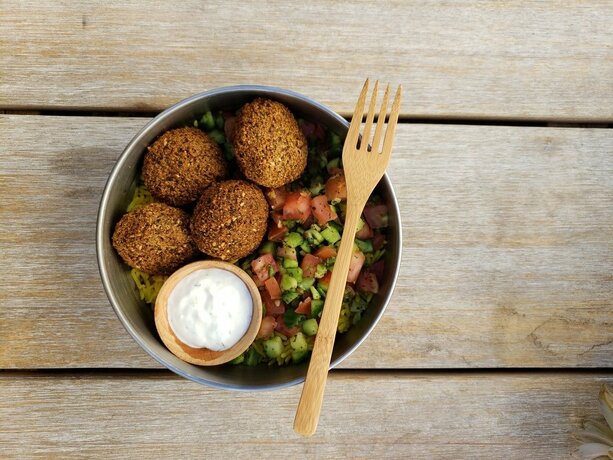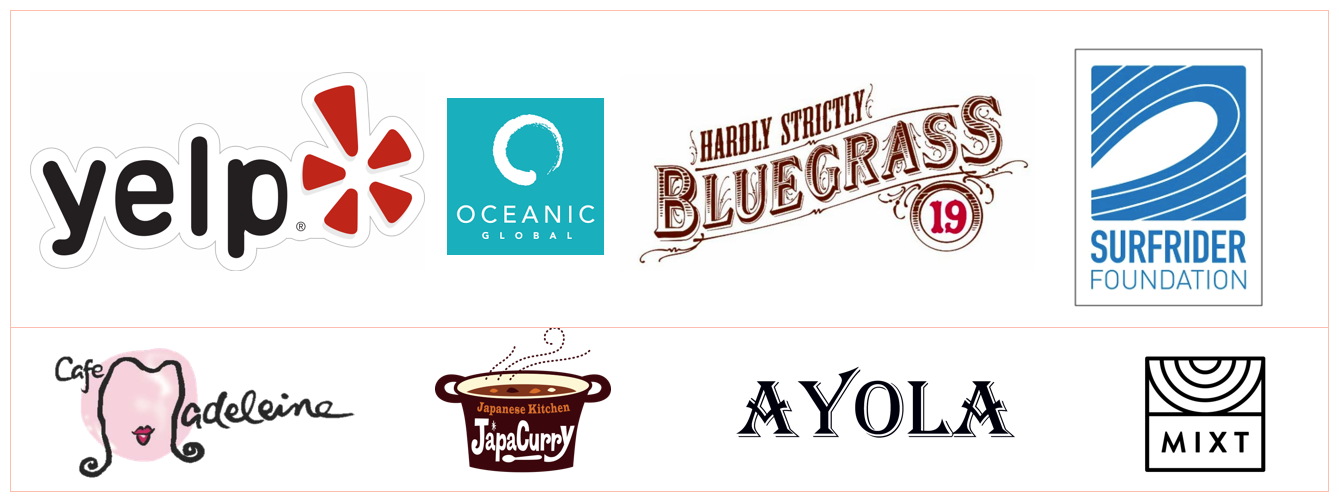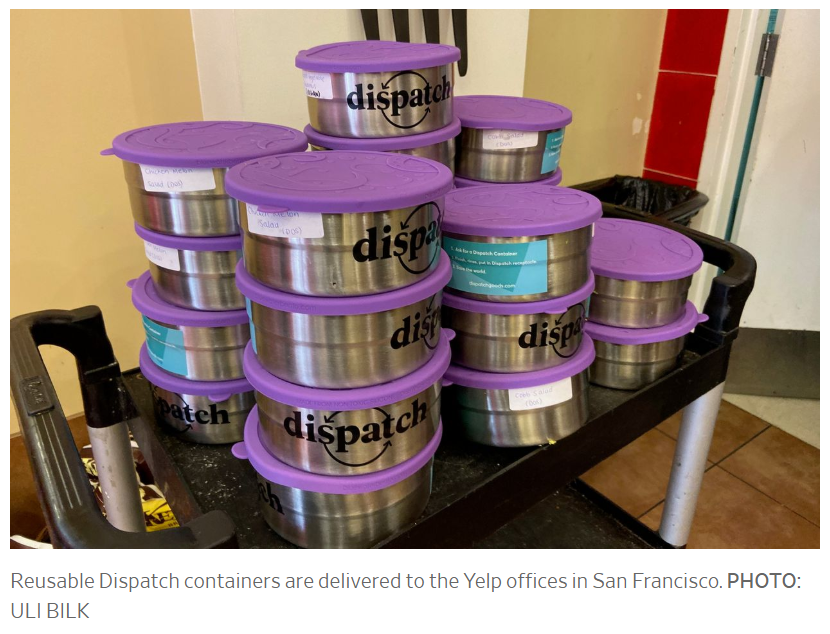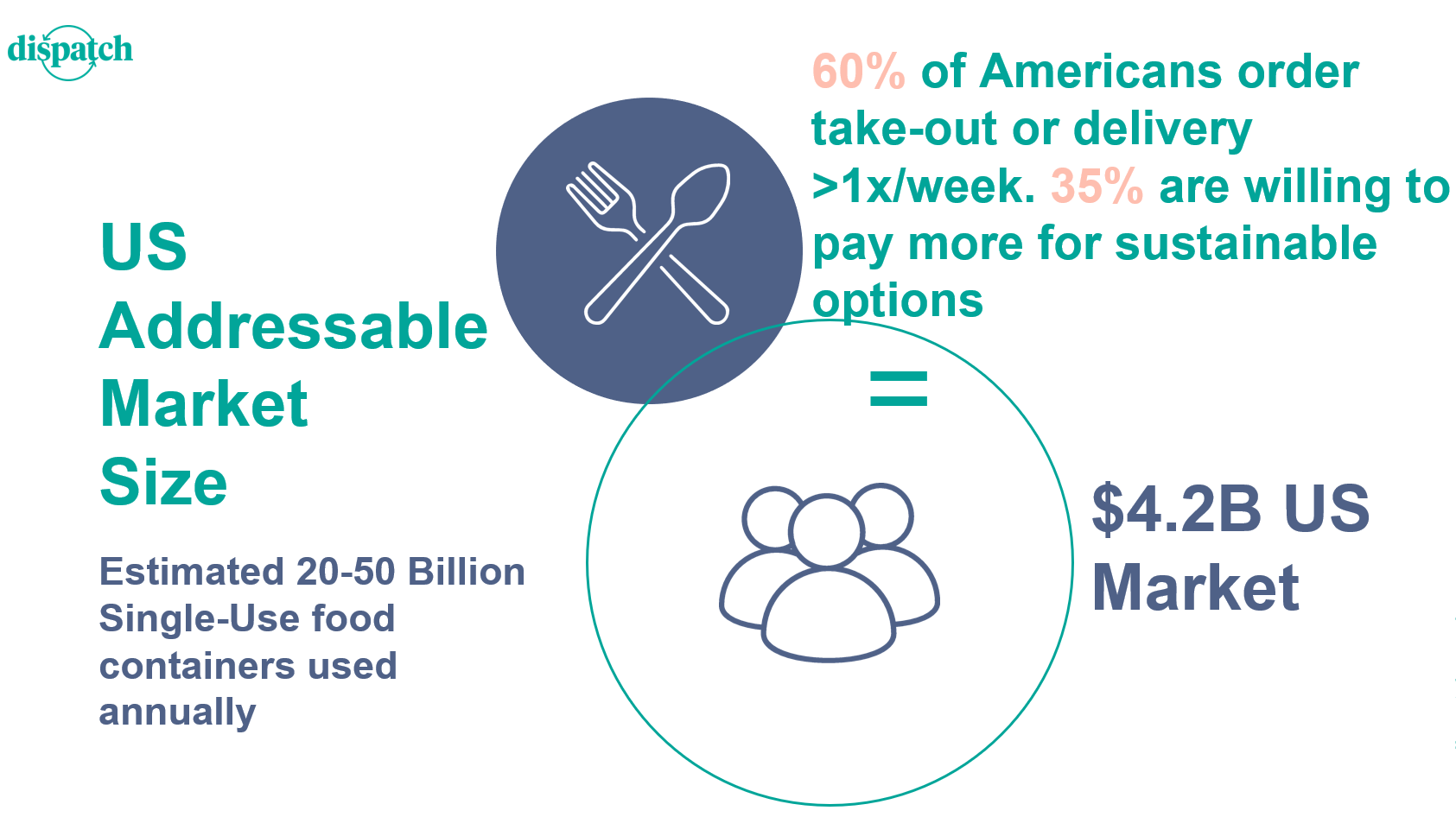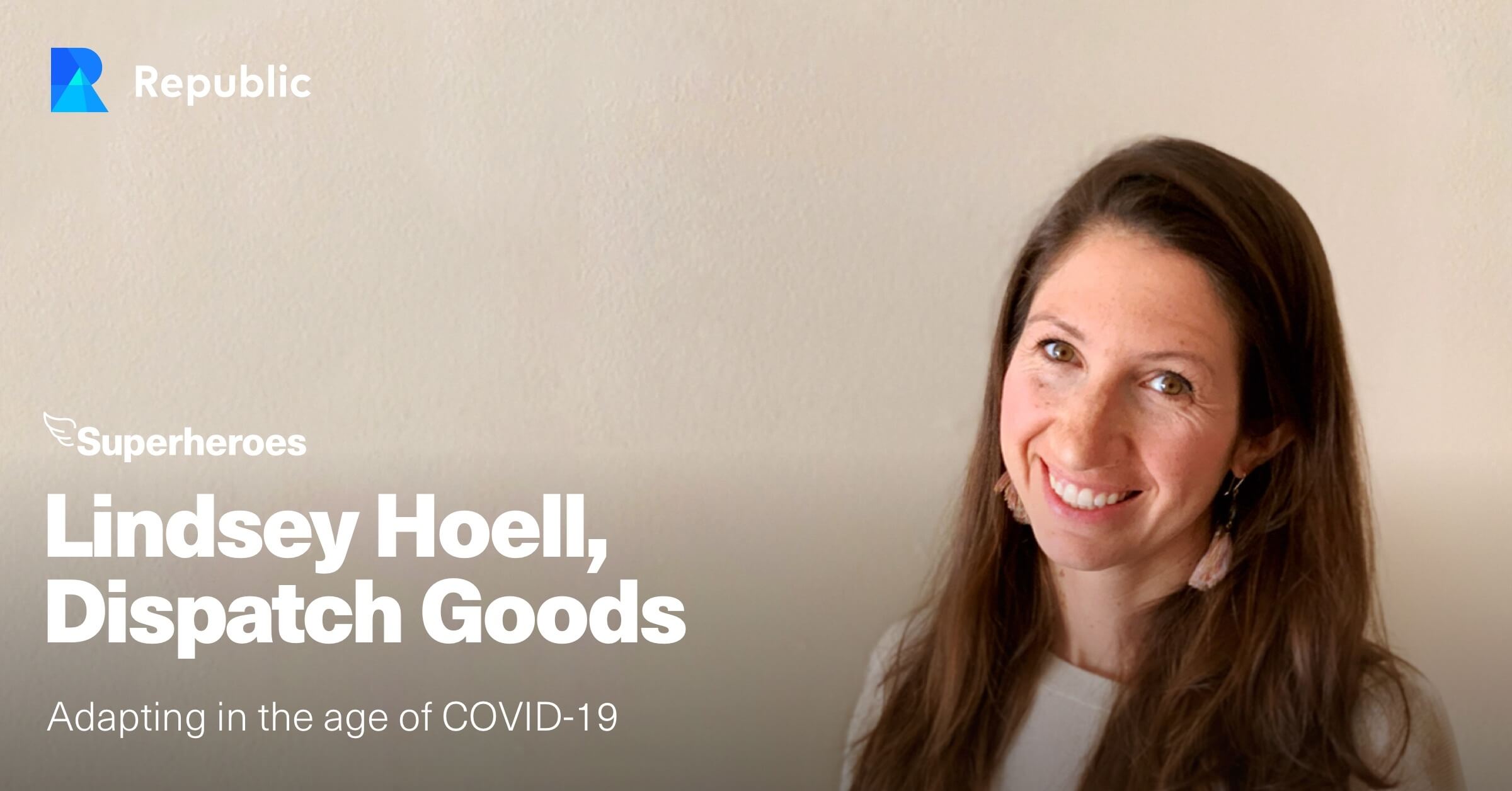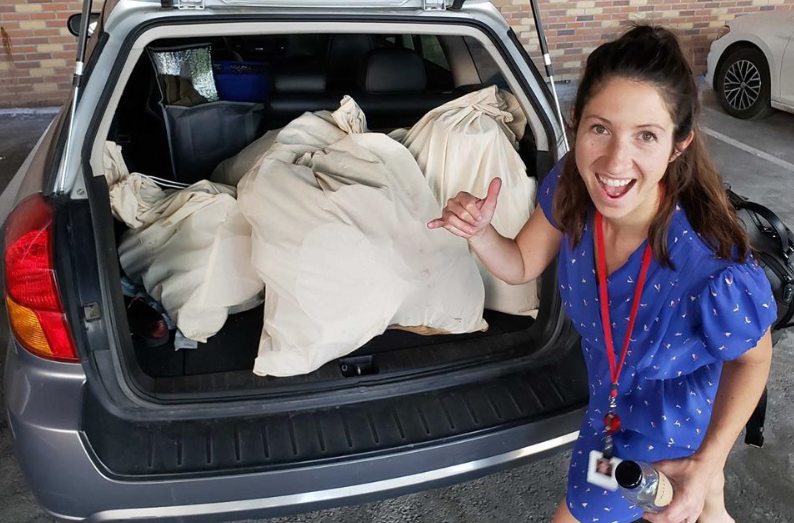Few things can make a chief executive break out in hives as quickly as the word "regulation." Peruse the catalog of CEO s...
Problem
More food delivery, more waste
More and more people are ordering restaurant delivery and takeout. But what happens to the containers for all that food?
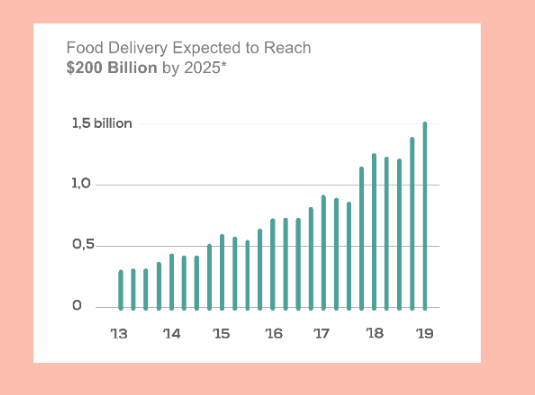
Virtually none of those single-use containers can be reused or recycled. "Biodegradable" or "compostable" plastics made with corn starch or sugarcane actually require prolonged high temperatures under industrial conditions to break down, meaning they will continue to clog up landfills and waterways if left to their own devices. Furthermore, studies have shown that fiber bowls, like those favored by fast-casual restaurants such as Chipotle, often contain 'forever chemicals' such as per- and polyfluoroalkyl substances (PFAS) which are used to keep the bowls from disintegrating. These PFAS ruin a composter's output (fertilizer for farms) and leach into the meals they're meant to hold.
Solution
Dispatch Goods: sustainability, delivered
We are an app-based logistics company that provides reusable food containers to restaurants for takeout and delivery orders. We partner directly with restaurants to reduce waste by replacing traditional single-use containers with our stainless steel ones. We then collect, wash, and return those containers to participating restaurants. This makes it easy for customers, smart for restaurants, and good for the planet.
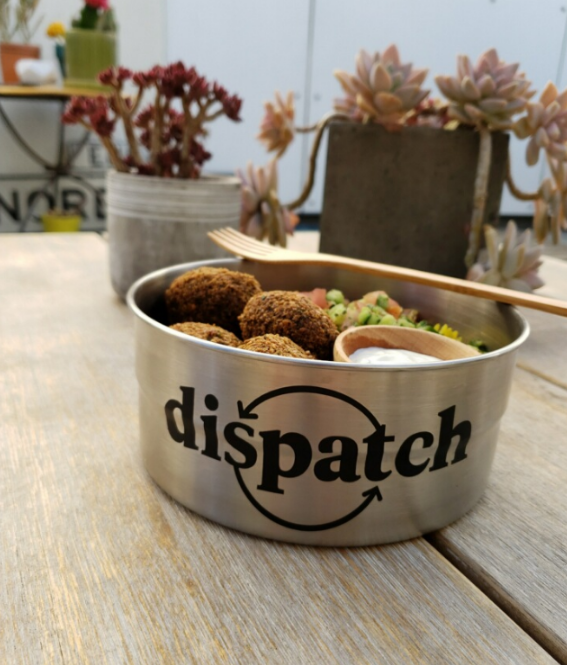
Product
Hungry? Follow these steps!
- Sign up for a Dispatch Goods monthly subscription (or pay a small one-time fee) and use our app to find a partner restaurant near you.
- Receive your takeout or delivery food in a reusable container. Enjoy your meal.
- Deposit your used container into a Dispatch collection bin. And that's it, you're done!
While you focus on more important things, we'll collect your used containers, transport them to a commercial kitchen, wash and sanitize them, and return them to our partner restaurants to be used again.
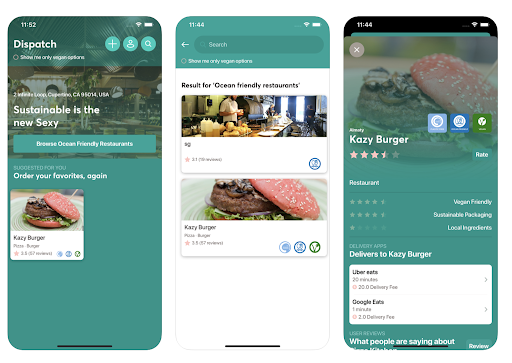
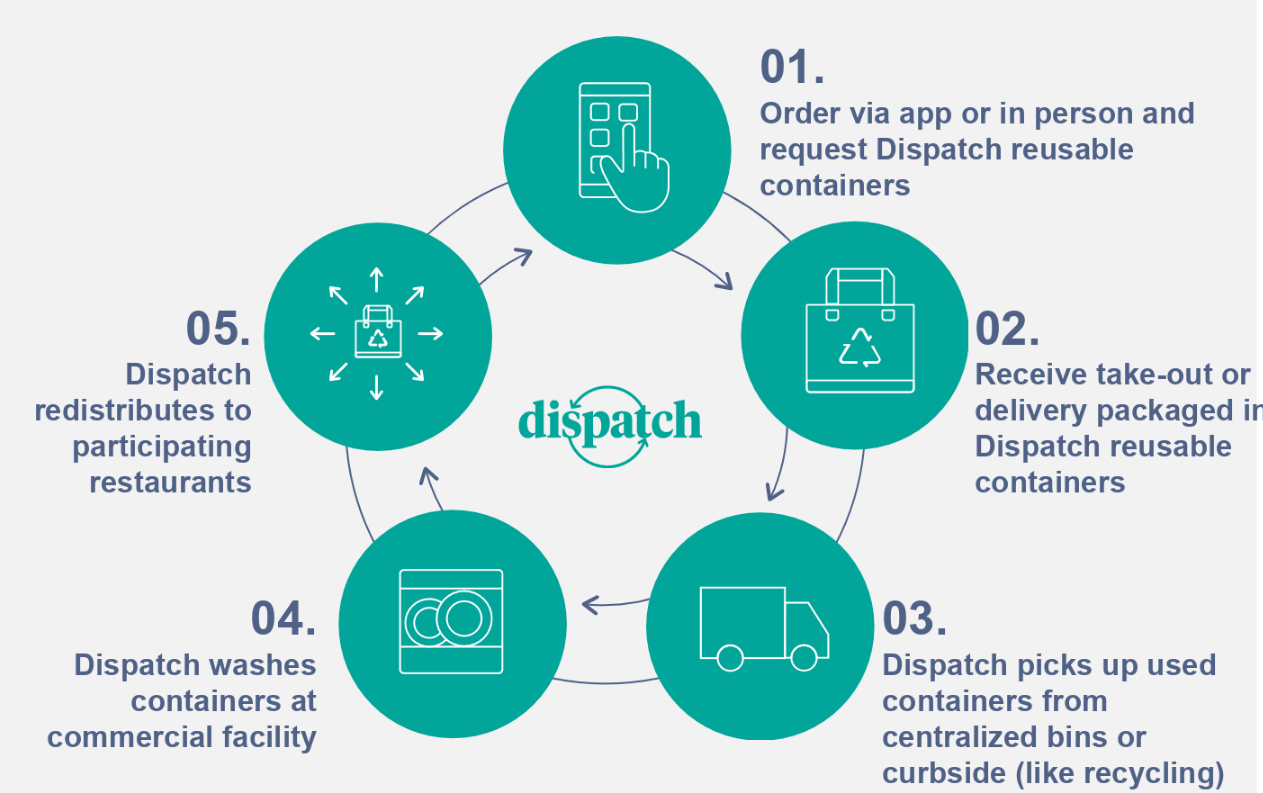
Traction
Partnering with major restaurants & businesses
Through our pilot program, we've established partnerships with restaurants and companies in San Francisco and are adding new partner restaurants every month. Two large paid corporate clients are launching subscriptions with us this March, and additional B2B customers continually e-mail us to ask for business proposals in order to satisfy their sustainability initiatives. Best of all, we were recently featured in the Wall Street Journal about how our model would profit from increased environmental regulations.
Customers
Sustainability served
Our current target customers are the corporate social responsibility teams (CSR teams) found at large firms in metropolitan areas. By leveraging the demand for convenient and sustainable alternatives to single-use products, and by utilizing the founders' business school and industry connections, we have secured sales meetings with some of the world's top companies. We look forward to closing multiple official deals with them (wherein they purchase Dispatch Goods monthly subscriptions for their employees) by Q2 of 2020. Through this process, we expect to add more than 20,000 monthly subscribers with virtually no customer acquisition costs.
We plan to launch our B2C subscription model (wherein individuals can purchase Dispatch Goods monthly subscriptions for themselves) in the very near future.
Business model
The one sustainability ecosystem to rule them all
Because restaurants do not have the physical space to house reusable containers from more than one company at a time, Dispatch Goods operates in a market that will tend toward monopoly. If we partner with a restaurant, it is very likely that they will not simultaneously partner with someone else. For this reason, our focus is to expand to as many partner restaurants as quickly as possible, while still keeping costs in-line.
Our service is currently only available to working professionals. Soon, Dispatch Goods will offer a variety of B2C subscription tiers (in both California and Ohio), making it easy for customers to choose the membership program that works best for them. Tiers vary from $5-$30 a month, with a minimum profit margin of 50% to cover our operational and fixed costs.
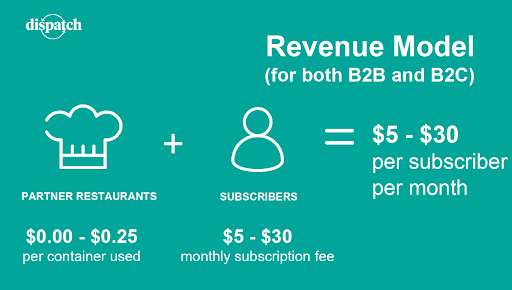
Market
20–50 billion single-use containers discarded annually
Food delivery is expected to be a $200B industry by 2025. This means that nearly 100 million single-use takeout and delivery containers will be discarded every single day. As restaurants and consumers strive to address the threats posed by this environmental catastrophe, there exists a tremendous opportunity to provide sustainable, eco-friendly alternatives which can work alongside other delivery services.
With our current corporate partnerships and upcoming pilots with the leading food delivery apps, we believe that Dispatch Goods is the company best-positioned to capitalize on these opportunities.
Competition
A blue ocean of opportunity
There are a few companies (listed below) that offer products similar to ours, but none which offer a product identical to ours.
More importantly, none of these companies have been able to gain traction with the B2B corporate audience in the way that we have. We believe this is our strongest competitive advantage. By tailoring a service specifically for CSR teams, by providing large companies the chance to improve their commitment to sustainability by purchasing Dispatch Goods reusability memberships for their employees and by leveraging the power of our business school network, we believe we can 'jump start' our growth and add market share faster than any of our competitors.
Competitor examples include:
- In San Francisco, the company Sparkl (formally known as GoBox) provides reusable plastic containers aimed at closed-loop systems such as corporate cafeterias.
- In New York, the company Fresh Bowl provides meals in returnable glass containers which can be purchased from vending machines located at various locations across the city.
- In Asia, Muuse offers reusable tiffins and has branched into reusable coffee cups.
- In Australia, the company Returnr has partnered with Deliveroo to deliver meals in metal bowls for an upfront fee that gets refunded upon the return of the bowl.
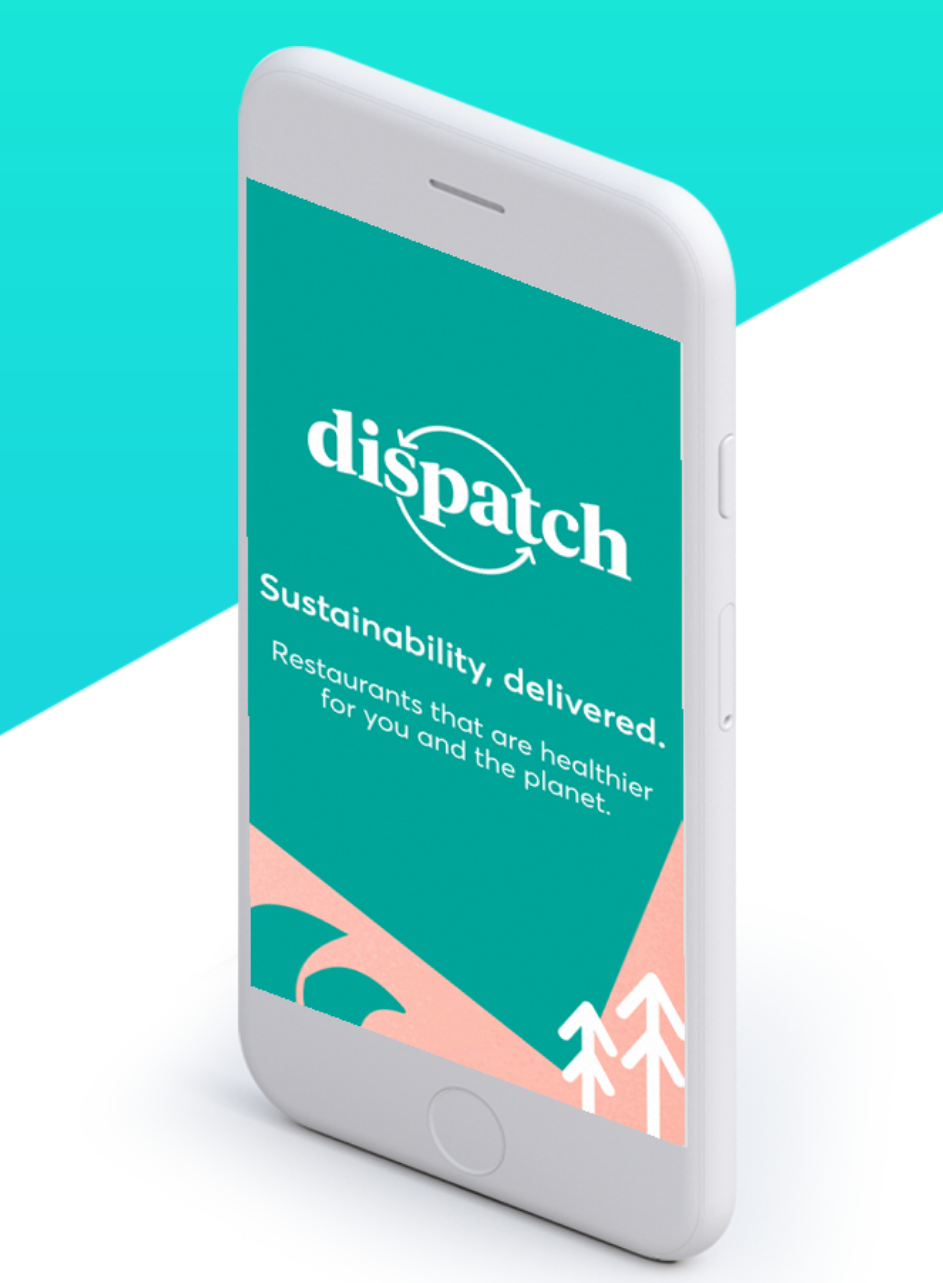
Vision and strategy
Helping to eliminate single-use food packaging worldwide
We were founded with the simple desire to heal the world and to build an impressive company while doing it. By reaching our fundraising goal (we are simultaneously attempting to raise through both Republic and through more traditional investors), we will be able to expand our product offerings throughout California and to other high-density cities across the United States.
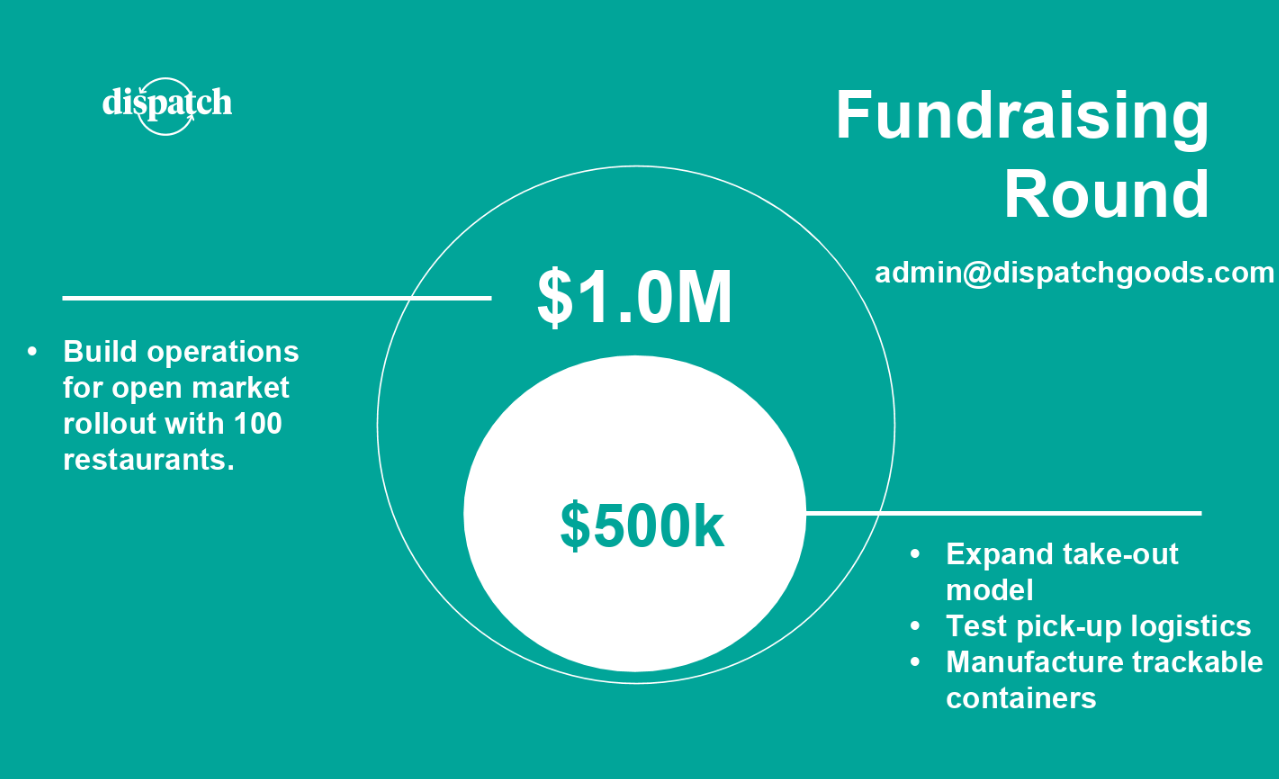
Funding
Bootstrapped by a lean and dedicated team
We have mostly bootstrapped our operations since inception, but have also received, or will receive shortly, material cash investments from the Sustainable Ocean Alliance (SOA), the Trione Foundation, and from Seabird Ventures.
In addition, we have received extensive non-cash support from the UC Berkeley entrepreneurship network as a result of our having won the Berkeley StEP pitch contest. We are also part of the Berkeley Launch community, Skydeck's Hotdesk Program, and best of all, we will compete this March in the London regional for the $1,000,000 Hult Prize (which had over 300,000 contestant entries).
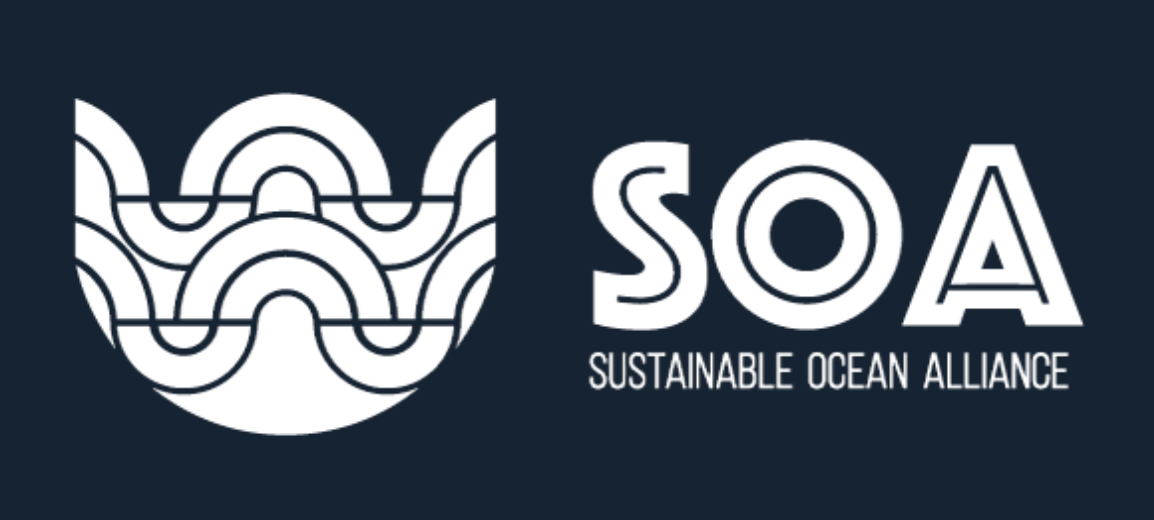
Founders
Sustainability-focused and business-minded
To say that we wake up every morning trying to figure out the best ways to reduce ocean plastic would be an understatement. In fact, the entire reason for CEO Lindsey Hoell to attend the UC Berkeley Haas School of Business was so that she could launch, build, and grow this company. After falling in love with entrepreneurship a decade ago and starting her own women's surfwear company, Lindsey has been searching for a way to combine her love of startups with her passion for sustainability.
Together with co-founder Jessica Heiges, the team at Dispatch Goods has more than 15 combined years of transitioning restaurants to more sustainable practices. Jessica was the lead on designing UC Berkeley's Business School to be the first TRUE Certified Zero Waste academic building in the world.
Head developer Andrew Foster is a designer and full stack web developer who, alongside Lindsey, ran Hawaii's Surfrider Ocean Friendly Restaurants Campaign. He has extensive design experience working with environmental impact companies as well as development experience at large tech companies, like Google.
On the business side of things, co-founder Adam Boostrom walked away from a lucrative career in finance (and a burgeoning career in publishing) to commit himself fully to growing Dispatch Goods into a sustainability unicorn. Driven by what he calls "an incredible market opportunity," he keeps his eye trained closely on the company's bottom line.


 Oops! We couldn’t find any results...
Oops! We couldn’t find any results...

